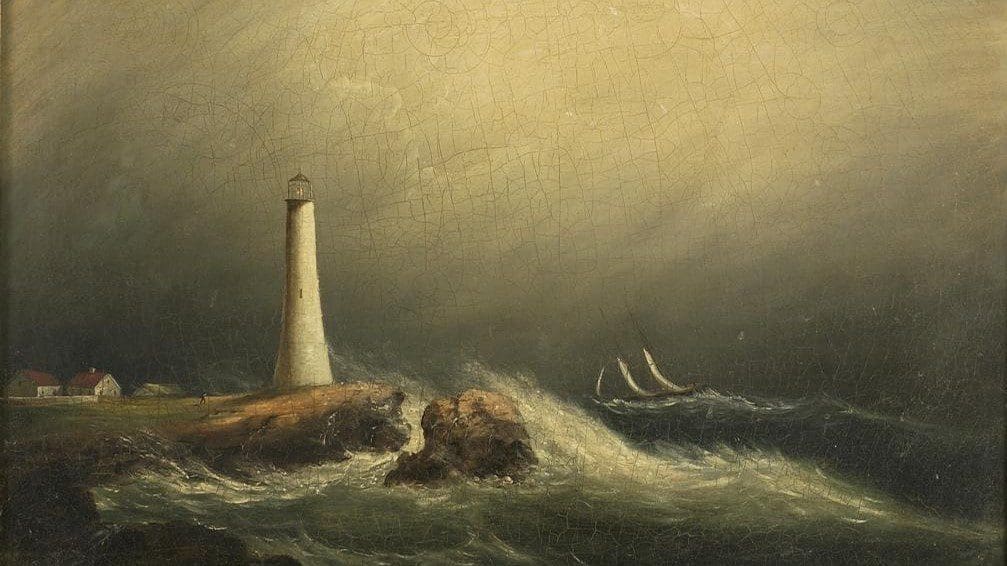Experience shows that if someone thinks of progress as something that happens by necessity, they generally do not like facts, books, opinions, and people that contradict tis idea. Progress is a kind of a ‘sacred fact’ beside which there can be no place for other facts. Progress is something that ‘even the blind can see.’ Or maybe not?
Historian of ideas Attila Károly Molnár, a Hungarian conservative political thinker, and head of the Thomas Molnar Institute for Advanced Studies, published a book last year titled Who Would Conserve What?[1] The book is a collection of several, loosely connected essays which can be grouped around the main nodes of conservative thought.
Each essay covers essential topics for conservatives, such as the contrast between wishful thinking and reality in relation to the state and politics, the dysfunctionality of political utopias,
the eternal opposition between the philosopher and the politician,
the compatibility of the idea of democratic equality with the never-satisfied and desire-driven human nature. But the work also raises one of the most pressing problems of our time, the question of ‘gender equality’, as well as the latest developments of modern new-left movements, such as the woke subculture (wokeism), and their impact on traditional societies.
Who Would Conserve What?
The author interprets his own position on human nature as based on the concepts of the opposition between the heavenly and the earthly city, defined in St Augustine’s fundamental treatise De Civitate as Civitas Dei and Civitas Terrena (or Civitas Diaboli). According to Molnár’s interpretation, human nature, if it is ‘left alone’ by institutions and external constraints, does not produce spontaneous development, but rather its negative aspects come to the fore. Contrary to liberal theories, the society of ‘competing individuals’ does not stem from the fact that the best prevails, but mostly, and rather, that egoism grows in general in society. The voice of the most violent, loudest and most demagogic individual is most likely to prevail. According to his view, human nature is not only imperfect—and this is also the general position of various directions of conservative thought, which is further confirmed by the Christian doctrine of ‘original sin’—but it also tends to become more and more imperfect if the old, restraining restrictions are lifted.
In the author’s view, the solution, of course, does not lie in controlling society from the outside, ‘forcing it onto the path of order’ through more and more restrictions or some kind of an all-encompassing, comprehensive political/social ideology. Nothing would be more alien from the position of the author and of conservatives in general. This solution would be precisely the evil that has been tried in history above all by those who wanted to free man ‘at all costs’ from the rule of various, perceived or real tyrants, i.e.—according to the Old Testament example used by the author – of the ‘pharaohs.’ As he formulates:
‘The people of the democracy are constantly being mobilized for something or against someone,
they are constantly living in a state of enthusiasm arising from the hope of liberation.’[2]
There must be some kind of ‘liberation’: be the ‘oppressor’ either religion, birthright, or the inherent tyranny of the nature of the individuum, which has various limits. As Attila Károly Molnár emphasizes: the great era of planning is closely related to philosophical rationalism and its political projections. Since the days of the French revolution of 1789—also called the ‘great’ revolution by both its enthusiasts and philosophical opponents—the rationalist conception of society, based on some kind of secular salvation plan, has been trying to straighten out the eternally bumpy roads of politics and society.
However, the ideology of progress seems to be failing these days. With the advent of modernity, society did not become more just in general, only new concepts and forms of justice and injustice were created and came to the fore. It did not become more equal because new forms of inequality appeared instead of the old ones. According to Tocqueville, (quoted several times by Molnár,) this is also possible because the basic principle of freedom presupposes inequality. People are not equal, either physically, morally, financially, or even intellectually. They are not equal, even if we would like to ‘see’ (or ‘lie’ about) them as equal.
Although the outright naïvety of progressivism may for a short time indicate this otherwise, the practice and experience, which are so important to conservatives, shows again and again that
‘there is nothing new under the sun.’
With a clear mind, we cannot speak of development as having proven that modernity will lead humanity to a secular Canaan or to some kind of paradise of equal distribution of goods, general education and human solidarity. Looking at the history of the 20th and now the 21st century, we can often talk about the opposite.
However, the ideology of progressivism to this day sees the process of modernization as if it were a linear development. Today, they argue, there is not a distinct birthright aristocracy: it has been erased by the ‘wheel of history’ as ‘injustice.’ But in reality, every new regime builds its own networks and maintains a monopoly of power for its own people.
Therefore, emphasizes Molnár, the ‘blind believers of progress’ have almost completely taken possession of the cultural, political and social space, a good part of the scientific discourses, as well as (especially in the Anglo-Saxon world) of the most important forum for social progress: the universities. According to the author, the political activism of the conservatives is justified by the fact that the typical statements of their opponents seem to contradict rationality, experience, and sometimes even the most basic observations about society, politics and human nature. It can be said that they move along a circular logic, the danger of which is also proven by the totalitarian experiments of modernity.
These ‘blind believers,’ whose position is very far from the general scepticism of conservatives regarding the ‘goodness’ of human nature, always started out from the desire to create a ‘new man’ and a ‘new world.’ According to the author, any person who wants to protect his own way of life, who is not blinded by a supposedly rational utopia and, at the same time, is not in a state of incessant agitation (which, based on Tocqueville’s formulations, Molnár also notes is mostly characteristic of liberal democracy) has to say something against these developments. In other words, he has to react. Hence the fact that progressives sometimes label conservatives as ‘reactionary’—but reaction is essential when responding to a challenge.
Anthropological pessimism? It would be too easy to settle the matter with that word. If historical experience, which is so important to conservatives, seems to justify their ‘pessimism’, if they can support their views with examples and arguments,
it is no longer pessimism, but anthropological realism.
And why would conservatives be convinced of the opposite if neither the current state of society nor the course of history supports the ‘holy fact’ of progress? Of course, it is customary to accuse them of seeing only what is good in the past and not noticing its negatives, arguing that ‘conservatives idealize the past.’ But isn’t it precisely because many of the ‘non-conservatives’ still believe in Progress of the 19th century, because they are only willing to notice the positive features of modernity, meanwhile they generously forget about the huge losses that modernity has caused to all of humanity? Isn’t it precisely the case that the past is kinder to the conservative than the present because, unlike his ‘advanced’ peers, he still has enough humility to honour his ancestors with a question and doesn’t think of himself as the absolute pinnacle of ‘evolution?’ (This is also why Chesterton spoke of the ‘democracy of the dead’, which gives the right to vote to the most deeply oppressed social class: our ancestors.)
However, the conservative only needs to be reactionary in the current situation. That is, he must develop some kind of reaction if he does not want to completely cede the field to an unabashedly pressing, loud and demagogic opponent.
The reform fury of the progressives, analysed in the book from various perspectives, brings the author back again and again to the eternal problem of the conditio humana. According to the extreme objectivist and, at the same time, extremely subjectivist worldview of the progressivists, man is exactly what the stimuli of the external environment make of him. The human condition therefore develops itself, there is no conditio humana fixed by divine (or even by natural) laws. And why would there be, if God does not exist—of course not. The progressivists know it. The progressivist is a developed person, and a more developed one than every single one of his or her ancestors. Therefore, he or she knows well what the ancestors ‘cannot’ know. He or she knows well also that there are no ‘eternal’ problems, because the word ‘eternal’ is also completely meaningless, a ‘metaphysical’ term. In the Universe there are no real questions, only facts, facts of which we are ‘still ignorant’ and facts of which we are ‘already aware.’ Such is the world view of the blind believers of progress, inherently naïve and very self-confident at the same time (just like the world view of young children): although they sometimes declare themselves to be ‘sceptics’, they cling to the ‘superstition of facts.’
Perhaps a stubborn, and very ideological conviction is at work behind such views: there is absolutely nothing that can be measured by eternity, and the only thing that is eternal is change itself. This position
—the quasi-deification of change and ‘development’—
is a superstition par excellence, because nothing can be more absurd than a ‘development’ which is based on the principle of ‘eternal change.’ As every empirical experience shows: an explosion—or a hypothetical ‘Big Bang’—never creates anything ‘orderly.’ From destroying order, never stems something ‘more developed’, on the contrary, chaos grows like entropy. To reverse entropy, to build or grow something we need a force of the opposite of ‘eternal change’—which is, if we see it in itself, is nothing but eternal decay, the eternal perishing of things, lives and structures.
No one with a healthy mind can deny the existence of the world. And everyone who is looking for an explanation of the phenomena of the world must also raise the question of the cause of the world. It seems true that nothing has a solid ‘self-identity’—that is, it is constantly being created and constantly destroyed, similar to the stream of Heraclitus, but this also means that ‘the thing’ (as a physical phenomenon) cannot be an establishing cause in itself. If there were only change, then there would be nothing like the world. All experience related to phenomena induces that solid things exist, then disintegrate and decay. They do not evolve ‘spontaneously’, but disintegrate.
A conservative is, above all, a person who does not constantly experiment, but above all wants to preserve something—more precisely, who wants to preserve and display the principle of non-changing in the world of eternal change, in the spirit of a loyalty to it, to what is, at the same time, the cause and origin of all change. So-called conservatism is, above all, such an intellectual attitude.
Where God is denied, new, smaller gods soon appear.
According to Attila Molnár Károly, these new and smaller gods are clearly the idols of the desire for domination of the self-confident, ‘rebellious’ man, the ‘world-denying’ subject who is never satisfied with the world and the given state of things. As the author suggests: The lack of humility, modesty, the lack of respect for one’s superiors, the lack of discipline and respect are the main causes of most of the political and sociological problems of modernity. After all, according to the blind believers of progress, sailing never ends. However, according to conservatives, there is no such thing as an island of Utopia. Their problem in politics is not the search for an island that doesn’t exist, but: ‘[h]ow to get the disgruntled crew to help keep the ship of the state afloat, to keep it from capsizing and being shipwrecked?’[3]
The modern-day frenzy for reform makes this task even more difficult, as it implies that the ship must be constantly rebuilt as we are steering it, making it practically impossible to fight the waves.
[1] Attila Károly Molnár, Ki mit konzerválna?, Budapest, Századvég Kiadó, Budapest. 2022.
[2] Molnár, Ki mit konzerválna?, 13.
[3] Molnár, Ki mit konzerválna?, 26








